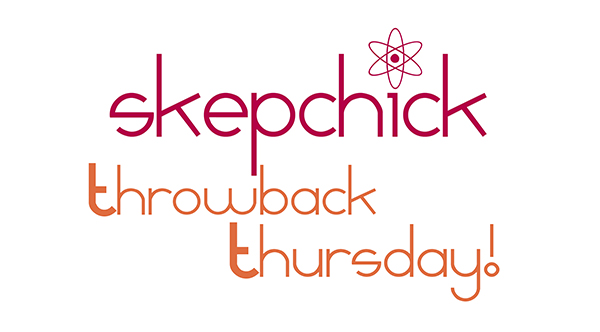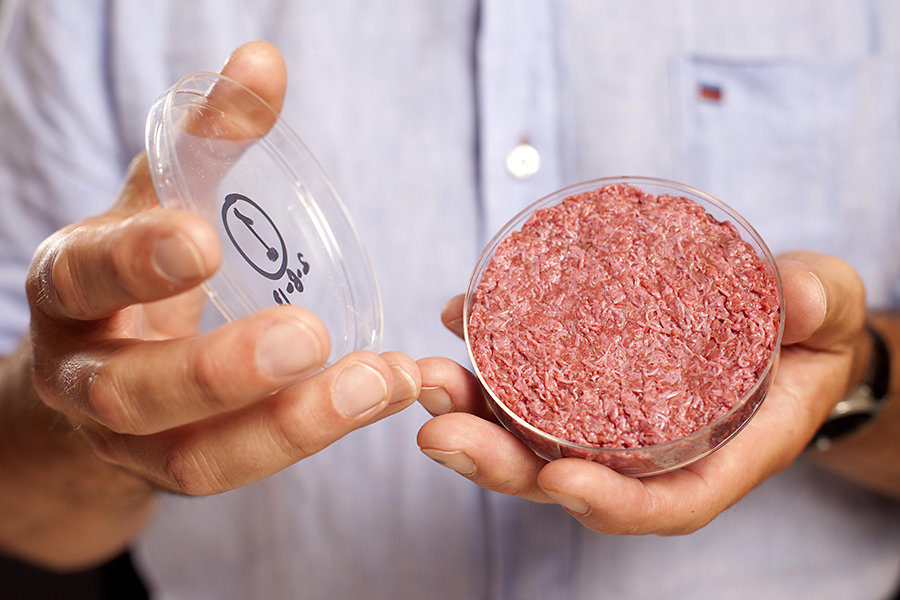AI: What to Call Non-Alt Med?
Yesterday, Carrie Poppy and I had a great conversation sparked by my re-tweeting of Sarah Moglia.
https://twitter.com/futilityfiles/status/359389572012064769
Click here for the full conversation.
Basically, I used the term “Western medicine” which Carrie called out for its potentially xenophobic implications, suggesting “standard medicine” instead. Sarah agreed that the term “Western medicine” is problematic. The problem with “standard,” of course, is that it relies on an American-centric (and perhaps Eurocentric) view of what is normal in medicine and what is not, which can be its own kind of xenophobic.
Is it important to prioritize language choice when taking down woo, or is it acceptable to resort to the most commonly-understood terms? What might be a good or at least somewhat better way to refer to “alternative” and/or “Western” medicine?





I think science-based is a good descriptor. I don’t care where it comes from, what are the physical, physiological, and chemical things that will happen to me as a result of doing/using it, and how much rigorous, peer-reviewed documentation is there to back that up?
You could potentially just call it medicine. If it works and is demonstrably effective and scientifically sound, it’s not an alternative to medicine. It IS medicine.
Science-based medicine is best. Steve Novella uses that term all the time. West implies west is better than east, which is not necessarily true. Mainstream medicine implies the mainstream is best, when science proves the mainstream wrong all the time (that’s what it’s supposed to do.
The problem I feel with “medicine” is that the term is diluted by those who use phrases like “alternative medicine” as if Alternative Medicine is a subset of medicine in general. Then you have to explain the differences between Medicine and Alternative medicine, and since you don’t have a descriptor, it makes the explanation harder and more cumbersome. “Science based medicine” wraps things up in a nice neat phrase that you can explain easily. “Science based Medicine that is based on science and scientific testing and has proven to work, whereas Alternative Medicine is not based on science and could be useless or even harmful to you and has been proven not to work by science.”
For every one of those reasons, I agree. I tend to make statements after a conversation gets going that defines medicine as science-based medicine and thereafter start using simply medicine.
I don’t think science based helps. The woo folk already claim to be science based. Witness ‘Christian Science’ and ‘Scientology’ that have turned quackery into a religious cult that claims to be ‘scientific’.
Empirical science is much better because none of the cults ever claimed to be empirical.
Agh! Empirical Medicine! Not Empirical science.
“when science proves the mainstream wrong all the time (that’s what it’s supposed to do.)”
So if science demonstrates that the mainstream view is correct, it didn’t do what it was supposed to do?
The antagonist view of scientific endeavors is, I think, outdated. Surely we can appreciate, for instance, that the last major complete overhaul of a mainstream scientific theory was what, the introduction of plate tectonic theory some 40+ years ago? We’re obsessed with the early accomplishments of science to oust non-empirical and non-mathematical hypothesizing, but it would be a mistake to expand this type of progress to the present or down the road. It is almost unthinkable that modern mainstream science will simply ever be proven wrong, and not because we know everything now but because we have become VERY good at applying the tools of empiricism and skepticism to what we think we know.
Such complaints about the term “mainstream” as applied to medicine are similarly misplaced. Modern “mainstream” medicine is very, very good; and I would greatly appreciate it if someone could give a nice example of a recent demonstration of it being abjectly wrong. I see below this comment exchange for instance that there are complaints about frequentist v. bayesian statistical tests being applied to medicine, in the name of “evidence-based medicine,” which is the most salient example that comes to my mind right now too. But what about “mainstream” is so bad that we would give up such an approachable-by-the-layman term that for virtually all intents and purposes means exactly what we want it to mean, besides an abstract projection of what science’s purpose is?
Sorry, that sentence was not as nuanced as I thought it was. My point is that simply to point out the term “mainstream” is argument from popularity. Just because it’s mainstream doesn’t mean it’s right. However you are correct in that just because it’s mainstream doesn’t mean it’s wrong either. By using the word mainstream you potentially encourage people to think “if it’s popular it’s right.” That’s why “science based” is more concise.
I understand the complaint about argument from popularity, but science is neither a universally antagonistic endeavor, nor a blind excursion. I would maintain that it is certainly the case now that much – most? all but all? – of our claimed scientific knowledge is based on a consensus of evidence; the consensus of people follows from that. So, I am asserting something much stronger than “just because it’s mainstream doesn’t mean it’s wrong” – mainstream is a proxy for correctness*, given the methods by which we do science.
To get more to the point though, perhaps, that I particularly like “mainstream” over “science-based” (for why would I go for the former, if mainstream is supposed to imply science-based, which is surely more salient?): I have similar concerns like Phillip has about how woo-workers or non-skeptics or whatever term you fancy tend to try to assimilate these words and influence public perception of them. It was very easy for climate change “skeptics” to do this, and apparently there are woo-medicine folk that try to do it with “science;” the word “mainstream” though is very difficult to change public perception on, because it is not abstract.
In short: it is a very concrete term in its definition that is a very good proxy for the intent that we would like to use it as, which indeed is “science-based” or “empirical,” what have you.
(*drawing a distinction between being proven completely wrong, and being superseded by a better theory, such as quantum mechanics over classical mechanics)
For a recent demonstration of it being abjectly wrong, how about H pylori as the cause of gastric ulcers?
Cursory searches are showing that gastric ulcers are indeed caused by H pylori in most cases, such as from wikipedia or the NIH:
https://en.wikipedia.org/wiki/Peptic_ulcer#Cause
http://digestive.niddk.nih.gov/ddiseases/pubs/hpylori/
So, I’m not quite sure what you mean? If I may clarify ex post facto that I am no medical professional, such that named examples that don’t at first glance appear to match what I can Google will need some further clarification, please allow me to do so.
Sorry for being ambiguous, I am at work… yes, before that everybody thought it was excess acid production or something like that and nobody thought to check for an infective cause. That discovery was a real eye opener.
Also, I think a precision of language is important. I think it’s important not to devalue Not Me while calling something stupid out for being stupid. I’ve only become aware of micro-aggressions in the last year or two, and I wouldn’t want to sling any if I know can avoid it.
Miserlyoldman
I agree. It would also be harder for supporters of “alternative medicine” to attack.
I tend to call it “mainstream” medicine, science being universal and not restricted to a single geographical location.
“Empirical” medicine versus “folk”/”unstudied” medicine.
I like evidence-based, but I always have a nagging suspicion that the people I’m talking to might think any old evidence will do or even select bits of evidence despite sufficient contrary evidence. I favor science-based for the rigor implied.
Granted, I’ve only really had that conversation maybe three times, but I prefer to hedge my bets.
I saw this yesterday, and immediately thought that “Western medicine” was the trigger.
My thought for an alternative was just… “medicine”.
I think “empirical” or “evidence-based” are good neutral terms.
“science based” is my go-to
The USA, UK, and Australia are 3 different regions with superficial similarities but also profound cultural differences. Use of language varies. I am almost certain that the use of “alternative medicine ” means slightly different things and the list varies also. I am fairly sure that in Australia in common medical usage “alternative” does not always = “non evidence based” – it may simply mean “not usually thought of as within the purview of mainstream medicine”. At the same time it is true that tolerance of some “alternative medicine” (e.g. chiropracty) varies.
At the end of the day I think common usage will prevail and the best we can do is to recognise that different interpretations exist.
The English and the Americans are “two peoples devided by a common language.”
various attributions
Good old weatherwax, how ya going? We Aussies are somewhere in between, I think. Also, we tend to take a pretty casual attitude to most things until a certain line is crossed.
Can I also stipulate in passing that FDA/TGA approval or lack of it has little to do with whether something is science based or not.
The problem with the term “Western Medicine” is that it’s also used by alt-med types to imply that non-western cultures are somehow privy to a deeper understanding of the human body than western ones. The fact that that’s racist seems to escape most of them. Right now, I’m looking for a physical therapist and it seems all the ones near me advertise accupunture and chiropractic “medicine”. I used the term “real medicine” in the voice mail I left for my orthopedist looking for a referral. I think that got the point across.
Homeopathy is “Western Medicine”. The problem with Evidence Based Medicine is that the term has already been defined and in doing so, they fetishized the double-blind placebo-controlled prospective clinical trial using frequentist statistics and ignored prior plausibility and actual science. Thus you have EBM folks asking for more trials of homeopathy because all the large double-blind placebo-controlled trials show equivalence to placebo.
“The problem with Evidence Based Medicine is that the term has already been defined and in doing so, they fetishized the double-blind placebo-controlled prospective clinical trial using frequentist statistics and ignored prior plausibility and actual science.”
Exactly, very true, couldn’t agree more!
The problem with double blind testing in this context is that it cannot say that the woo stuff is junk. All the results can demonstrate are that it has no measurable effect in one specific test case.
With homeopathy we have no evidence that it works from any reliable test methodology and we have good reason to believe that it should have no effect whatsoever. Homeopathy is predicated on the existence of physical forces that have never been observed in any test environment and are essentially animistic. For homeopathy to be correct, our entire model of physics and chemistry would have to be fundamentally wrong.
“Evidence-based medicine” is fine sometimes, but there are definitely times when I think it’s wisest to use something more neutral. Plus, some people just don’t know what you mean by it, and then you end up having two conversations– one about the point you were making, and one about the definitions of the words you’re using.
Just “medicine” should be good enough, since the rest is not, though I also vote for “science-based medicine.” The trouble with “Western” medicine is that it isn’t; science-based medicine is international in its history, its scope of practice, and the nationality of its practitioners.
When talking to patients, I have referred to “mainstream” medicine. Like carrie says, “evidence-based medicine” sometimes requires explanation, and also sometimes people think I’m being pretentious.
I take issue with this typical skeptical trope. It really depends on how you define “medicine.” If you define medicine to include only biomedical practices, then of course much alt med and all non-biomedical practices fall outside of that definition. But if you define medicine more broadly and more closely to its original Latin meaning which referred to the healing arts, then medicine comes in all sorts of flavors and from myriad perspectives and cultures.
As with Heina’s tweet, this should not be read as an endorsement of the efficacy of such medical practices, only that we should be precise in the definitions we are using. So if you are to just use the word “medicine,” and you think to yourself that that should only cover science-based medicine, when you say that word to me I’m going to think of the broader definition, which can lead to confusion and our conversation becoming muddled.
At the risk of hair-splitting, I am defining medicine narrowly in order to obviate the confusion. I suggest that medicine should be defined as those measures that mitigate anything recognized as an illness in the International Classification of Diseases, separate from cultural traditions offering psychological support. And certainly there’s a role for different care providers; for instance, in my practice setting as a pharmacist providing addiction treatment to inmates in jail, I provide methadone or Suboxone and drugs for detox, and in general advocate for the sort of harm reduction strategies that work for addictions. And there’s social workers, psychologists and psychiatrists to provide cognitive behaviour therapy, motivational interviewing, etc, and aboriginal healers providing spiritual support to First Nations inmates. Acknowleging that there are social/societal/psychological factors that contribute to health or foster illness, I think that it muddies the waters to call every kind of support offered to people “medicine,” even though there’s medical implications to just about everything we do.
“I use “biomedicine” because medicine as it is practiced in Euroamerican societies tends to privilege biology and pathology over social determinants of health and illness”
Not true, actually. Both the history and the practice of modern medicine (or science-based medicine, or just medicine, whatever) is international in its scope, and every society has non-science-based cultural traditions of healing. Asian and African practitioners are every bit as science-based as their western counterparts. Some “western” medical practices are based on research conducted outside Europe or the Americas. I know some pharmacists who travel regularly to Africa with AIDS drugs, and one of the battles being fought there is the promotion by some governments (most notoriously, the former Health Minister of S. Africa) of herbal medicine in place of the drugs that work against HIV. After all, beetroot is cheap and drugs are expensive. And if cultural traditions in medicine are always to be respected, then we in the West should be practising witchcraft.
Yep, that’s definitely hair-splitting. Like I said, it’s all in how you define the term. You choose a narrow definition, and I do not. ;)
Sorry, but you’re being contradictory. You just said that:
But then in response to me saying that biomedicine as it is practiced in Euroamerican societies tends to privilege biology and pathology, you say that I’m wrong. You cannot have it both ways.
Sure. There are lots of different kinds of biomedicine. I was saying as it is practiced in Euroamerican societies to be clear that I am talking about “Western” societies. Biomedicine is practiced in all sorts of societies, and it is not limited to Euroamerican ones. Sorry if it came across as me saying that it was specific to Euroamerican societies.
What a horribly colonialist and ethnocentric statement. We should respect other cultural traditions of medicine and try to work with them to make sure that their treatments are the most efficacious. For example, see this book.
I’d say it’s horribly colonialist and ethnocentric to assume that people from non-Western cultures would choose less rational treatment modalities.
Uh, it’s not necessarily colonialist (do you know what that word means?), but it certainly would be ethnocentric. The thing is, I never made that assumption. Like I’ve already explained, I was not saying that I limit the definition of biomedicine to Euroamerican societies and if the way I worded it implied that then I apologize. I was saying that as medicine is practiced in Euroamerican societies, it privileges biology and pathology over other causes/contributions to disease, health, and illness, and that is why I call it biomedicine. So it feels like you’re arguing against a bit of a strawman here as I’ve already clarified myself and yet you continue to argue against a point I’ve said I’m not trying to make.
So just to be clear, any medical system that privileges biological and pathological explanations/causes of illness and health is biomedicine, regardless of what society it comes from. Non-alternative/mainstream/Western medicine as it is practiced in “Western” (aka Euroamerican) societies is biomedical. That’s why I call it biomedicine. I’ve already explained why science-based and evidence-based medicine are not great catch-all phrases, and my response to your comment was to point out that it is also important to recognize that people define “medicine” differently. You define it narrowly, and that’s fine. I choose to define it more broadly.
I use “biomedicine” because medicine as it is practiced in Euroamerican societies tends to privilege biology and pathology over social determinants of health and illness. My problem with using “science-based medicine” as a cover-all term is that not all biomedicine is science-based. Some of it is derived from cultural tradition (e.g., giving birth in the lithotomy position) rather than science- or evidence-based research. Using the term “science-based” could have the effect of giving medical practices that aren’t actually science-based but are still practiced in biomedical settings cover from critique because it makes it sound as if everything biomedical practitioners do is based in science.
Sure, call it science-based medicine when it truly is science-based; but I don’t think it’s wise to label all biomedical practices as science-based.
Looks like these people also like the word biomedicine, but I don’t think they have the same interpretation as you: http://www.biomedicaltreatmentforautism.com/
Okay? Is this supposed to be some sort of “gotcha” thing? I mean, by that argument, our “interpretation” of the word skeptic might have to be reconsidered. Showing me that some people co-opt words does not mean that my “interpretation” (which, by the way, makes it sound like I just made up this word despite the fact that I provided a link that explains the term and how its used) is incorrect. It just means that people use the word to try to validate their views.
I vote we call alt-med Diet Medicine (or maybe New Medicine) and actual medicine Medicine Classic
The problem with the term “Western medicine” is that homeopathy and Anthroposophic medicine are German. Reflexology is British. You never hear anyone calling these “Western medicine”. I really just think the term “medicine” should be used, as alt med clearly doesn’t actually heal anyone.
Medicine Lite: 100% less effectiveness!
Look, to get back on topic, I see it like this:
It’s Thursday and I’m SO tired I can hardly string two words together
(It would be easy on a whiteboard)
m= medicine
multiple axes, OK?
alt m – antonym mainstream m
western m – ditto eastern m
scientific m – ditto unscientific m
bio m – (Will help me out here!)
Maybe Mad Art Lab could come up with a chart using examples such as homeopathy, Chinese traditional medicine, chiropracty, iridology, herbalism, acupuncture, then going diet, exercise, physiotherapy, meditation, (fill in extra examples), then antibiotics, DNA testing…
I realise I’ve missed out 99.99% of it.
In medical anthropology we referred to it as Biomedicine, because western medicine erased any medical advances made by non-“western” individuals.